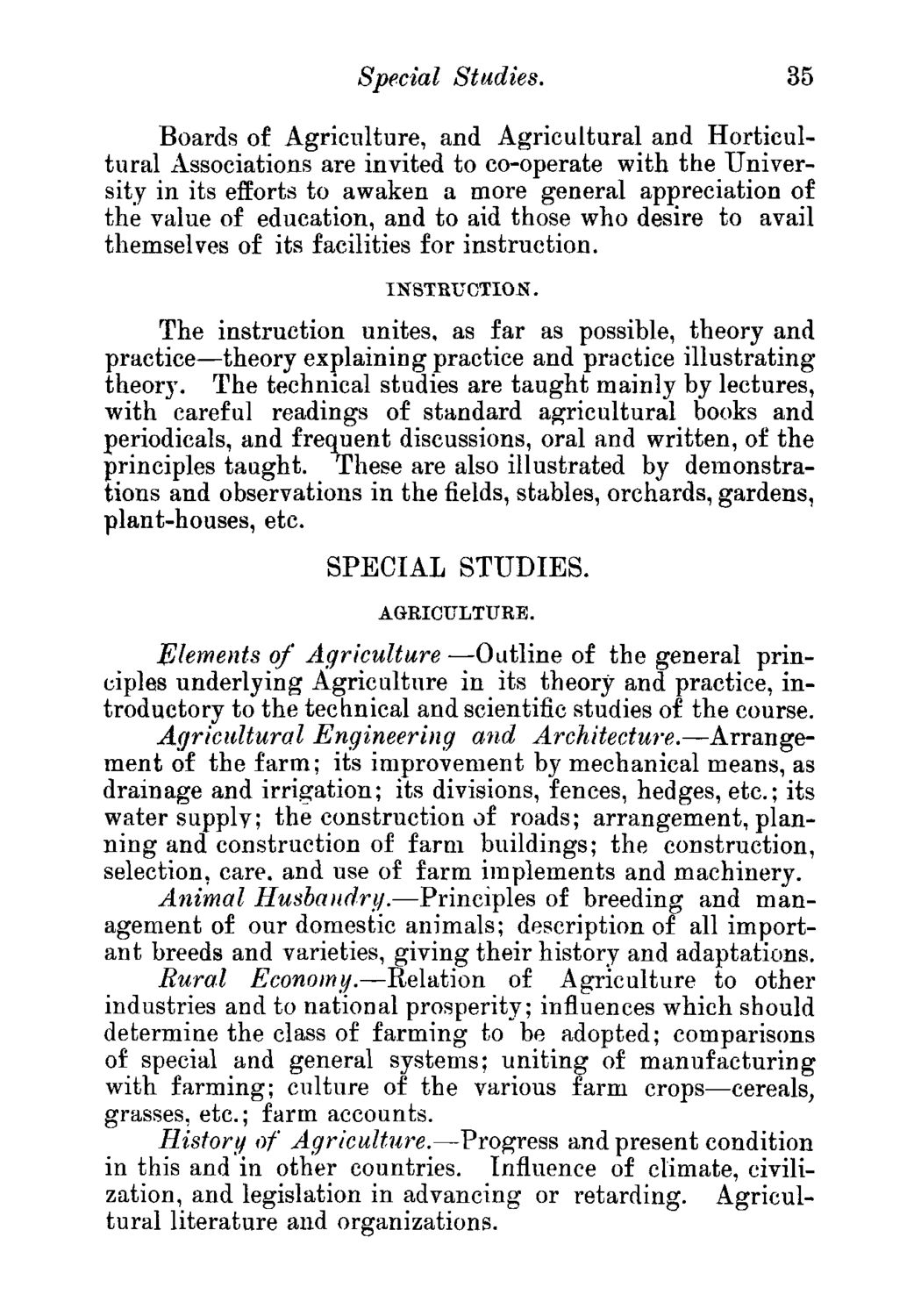| |
| |
Caption: Course Catalog - 1886-1887
This is a reduced-resolution page image for fast online browsing.

EXTRACTED TEXT FROM PAGE:
Special Studies. 35 Boards of Agriculture, and Agricultural and Horticultural Associations are invited to co-operate with the University in its efforts to awaken a more general appreciation of the value of education, and to aid those who desire to avail themselves of its facilities for instruction. INSTRUCTION. The instruction unites, as far as possible, theory and practice—theory explaining practice and practice illustrating theory. The technical studies are taught mainly by lectures, with careful readings of standard agricultural books and periodicals, and frequent discussions, oral and written, of the principles taught. These are also illustrated by demonstrations and observations in the fields, stables, orchards, gardens, plant-houses, etc. SPECIAL STUDIES. AGRICULTURE. Elements of Agriculture —Outline of the general principles underlying Agriculture in its theory and practice, introductory to the technical and scientific studies of the course. Agricultural Engineering and Architecture.—Arrangement of the farm; its improvement by mechanical means, as drainage and irrigation; its divisions, fences, hedges, etc.; its water supply; the construction of roads; arrangement, planning and construction of farm buildings; the construction, selection, care, and use of farm implements and machinery. Animal Husbandry.—Principles of breeding and management of our domestic animals; description of all important breeds and varieties, giving their history and adaptations. Rural Economy.—Relation of Agriculture to other industries and to national prosperity; influences which should determine the class of farming to be adopted; comparisons of special and general systems; uniting of manufacturing with farming; culture of the various farm crops—cereals, grasses, etc.; farm accounts. History of Agriculture.—Progress and present condition in this and in other countries. Influence of climate, civilization, and legislation in advancing or retarding. Agricultural literature and organizations.
| |